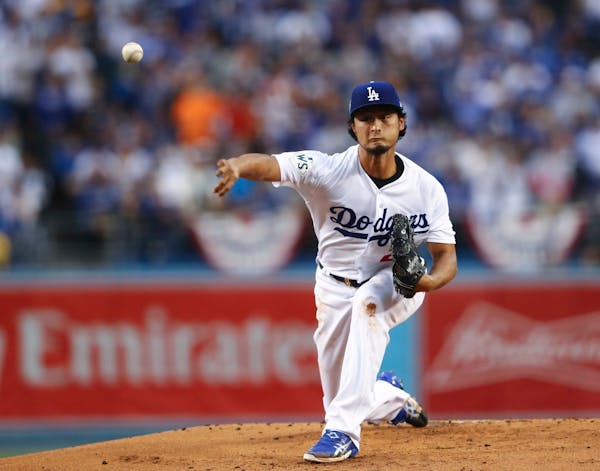So the Twins just gave $10 million guaranteed over the next two seasons to a pitcher who has a long injury history and underwent Tommy John surgery in July, meaning he wouldn't pitch much — if at all — in the first year of his two-year contract.
And I'm here to say that the Twins look … smart?
Yes. Bear with me.
Manager Paul Molitor described the signing of Michael Pineda as "outside the box," which is a good place to start with what there is to like about it. Let's break it down:
*Pineda's contract calls for him to make $2 million next season and $8 million in 2019. That's an unusual breakdown, but one that makes sense on a couple of fronts.
First, Pineda had surgery July 18. Recovery time to return to MLB action after having Tommy John surgery can vary, but generally it's considered to be somewhere between 12 and 16 months.
So best-case scenario for the Twins is that Pineda is on the quicker end and can potentially contribute in 2018. They clearly won't rush him back, but if he's ready there's no reason he shouldn't pitch. But even if he doesn't contribute at all in 2018, his salary is just $2 million.
It makes a jump to $8 million in 2019, which is notable because Joe Mauer's $23 million per year contract is off the books starting that season, as is Ervin Santana's deal. Baseball has no salary cap, of course, but teams operate within certain salary frameworks. This deal allows the Twins to stay aggressive in pursuit of pitchers who can definitely help in 2018 while deferring money to a pitcher who should help no later than 2019 to a year when they have less money committed to other players.
*Even if this ends up being more like a one-year, $10 million deal for 2019, that's a good time to have a fresh arm because, as noted, Santana's four-year deal expires after next season. And $10 million for a pitcher of Pineda's caliber is a fair bet.
*Before Tommy John surgery, Pineda was at least somewhat durable and potentially dominant. He only missed a handful of starts with the Yankees over the last 2.5 years before being shut down in July. His ERA in that span is a subpar 4.56, but his FIP — similar to ERA, while trying to strip out external factors like fielding — is a much better 3.82.
And in those 76 starts, he averaged 9.5 strikeouts per nine innings against just two walks. He's prone to giving up home runs, but having Yankee Stadium as a home ballpark explains at least some of that (he's allowed 49 homers in 275 2/3 career innings at Yankee Stadium but just 42 in 404 1/3 innings in other ballparks). He'll either be 29 or 30 when he makes his Twins debut, which puts him right in the prime of his career.
*The Twins' greatest postseason downfall from 2002-present has been a lack of lights-out starting pitchers. They're 2-20 in their last 22 playoff games, and both of those were started by Johan Santana.
Like the Twins' pursuit of Chris Archer via trade and/or Yu Darvish in free agency — both of which are still in play, since this Pineda deal is more aimed at 2019 — this move is about adding upper-echelon arm talent. Imagine a Twins rotation in 2019 that includes Archer or Darvish, Pineda, Jose Berrios and Stephen Gonsalves. Those are guys who can generate the swings and misses needed to succeed in the postseason.
Fritz Peterson, Yankees pitcher who traded wives with teammate Mike Kekich, dies at age 81
Carl Erskine, Dodgers pitcher and last surviving member of 'Boys of Summer,' dies at 97
Philadelphia 76ers set to start another playoff run with an ailing Joel Embiid

Live: Twins vs. Orioles at Camden Yards. Follow it on Gameview.

